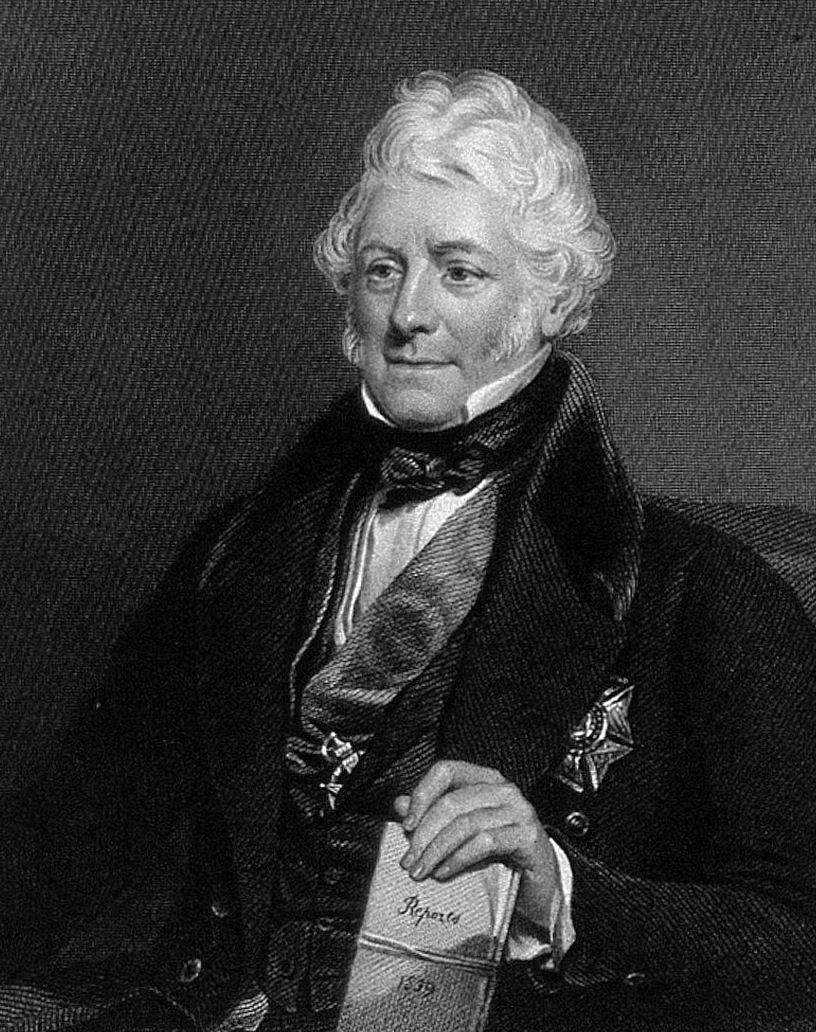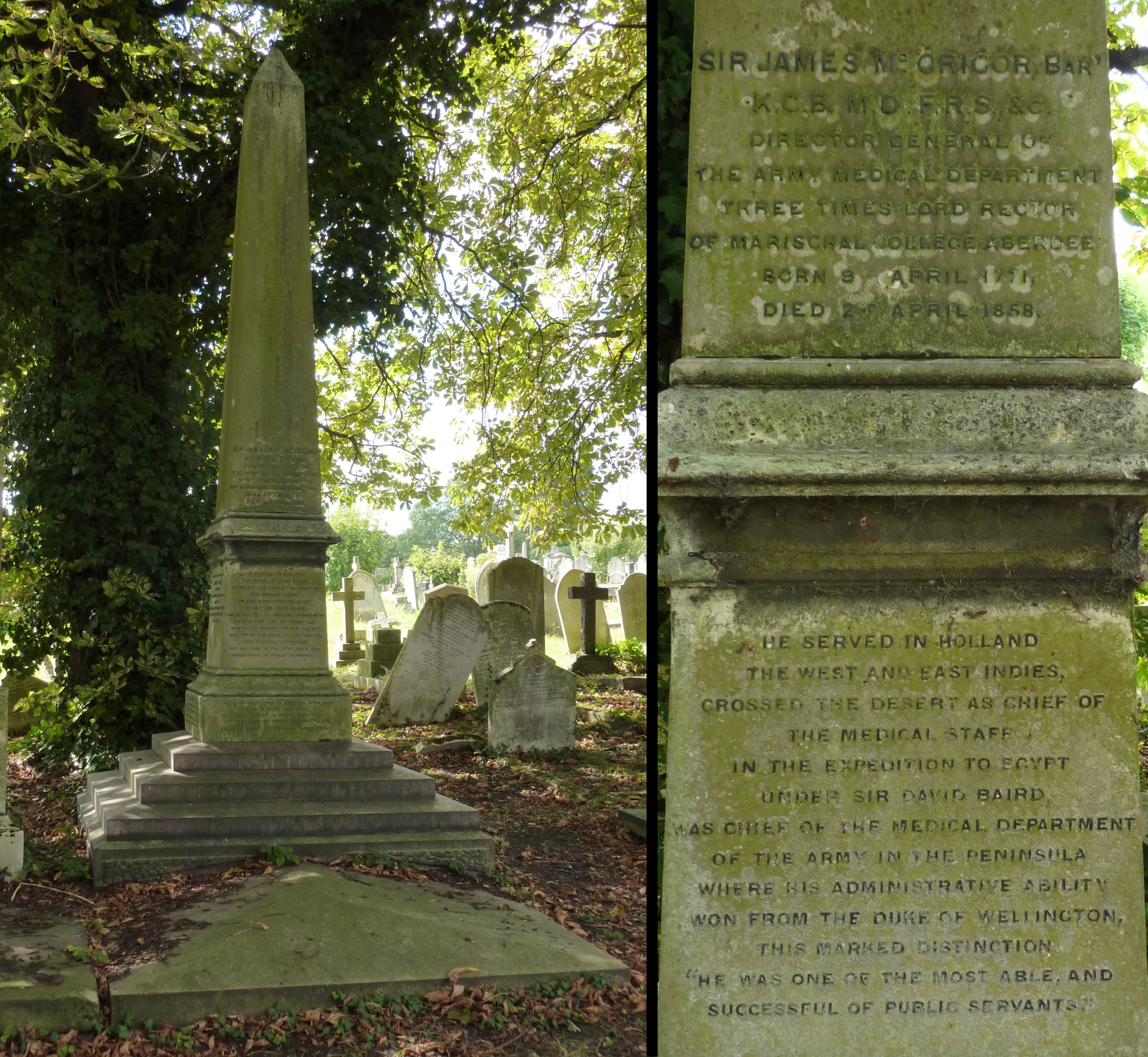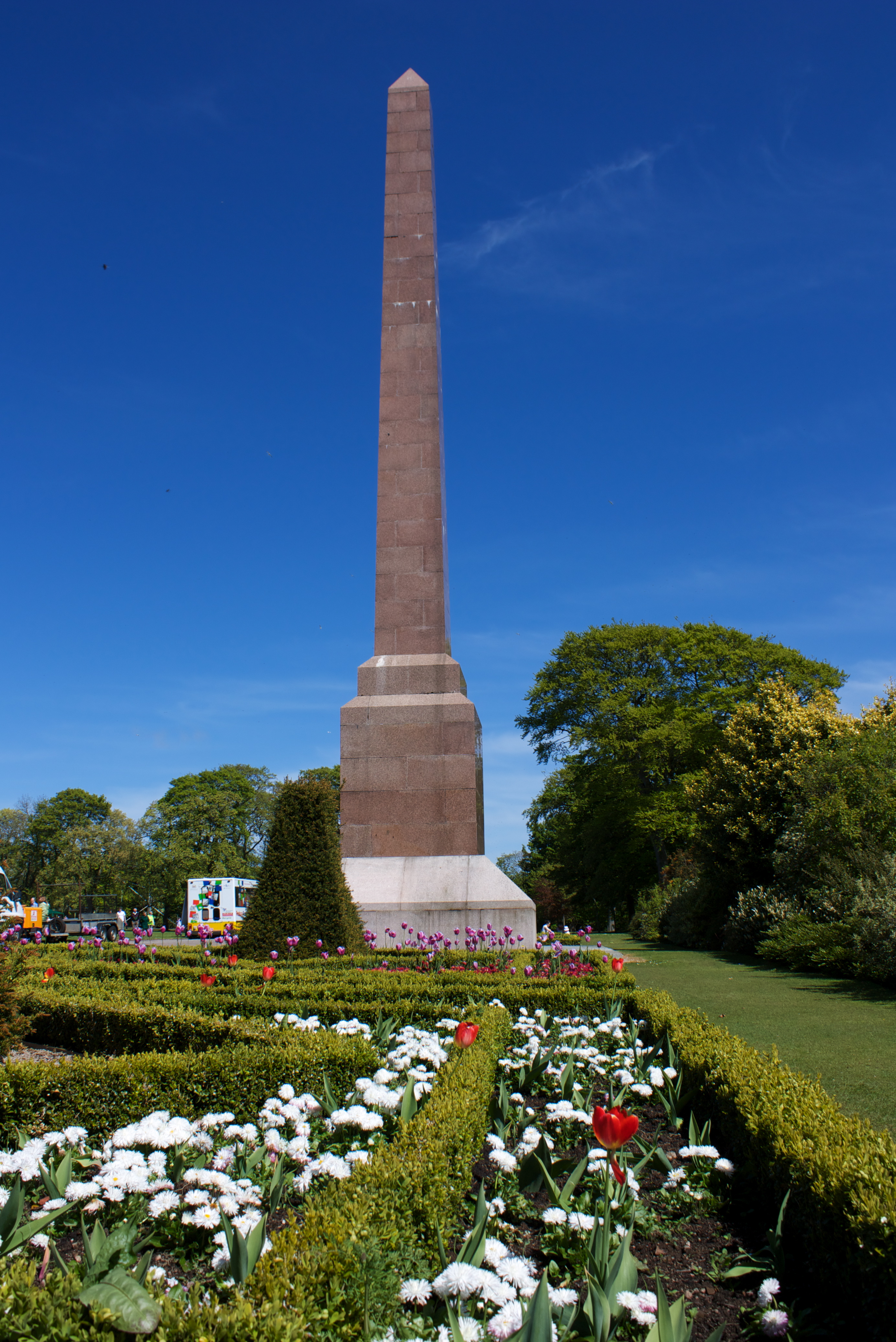James McGrigor on:
[Wikipedia]
[Google]
[Amazon]
 Sir James McGrigor, 1st Baronet, (9 April 1771 – 2 April 1858) was a Scottish physician, military surgeon and botanist, considered to be the man largely responsible for the creation of the
Sir James McGrigor, 1st Baronet, (9 April 1771 – 2 April 1858) was a Scottish physician, military surgeon and botanist, considered to be the man largely responsible for the creation of the


''Wellington's Surgeon General; Sir James McGrigor''
Durham, N.C., Duke University Press, 1974, 8vo., pp. xiv. * McGrigor, Sir James (ed. Mary McGrigor). ''The Scalpel and the Sword: Sir James McGrigor: The Autobiography of the Father of Army Medicine'' edited by Mary McGrigor. Dalkeith Scottish Cultural Press, 2000. Se
* Miles, A E W ''The Accidental Birth of Military Medicine: The Origins of the Royal Army Medical Corps''. Civic Books, 2009
Picture
{{DEFAULTSORT:Mcgrigor, James, 1st Baronet 1771 births 1858 deaths Baronets in the Baronetage of the United Kingdom 18th-century Scottish medical doctors 19th-century Scottish medical doctors People educated at Aberdeen Grammar School Alumni of the University of Edinburgh Scottish soldiers British Army personnel of the Napoleonic Wars Royal Army Medical Corps officers Scottish surgeons Scottish autobiographers People from Badenoch and Strathspey Alumni of the University of Aberdeen 88th Regiment of Foot (Connaught Rangers) officers Rectors of the University of Aberdeen 18th-century Scottish people 19th-century Scottish people Scottish botanists Fellows of the Royal Society of Edinburgh Fellows of the Royal College of Physicians of Edinburgh Fellows of the Royal Society Burials at Kensal Green Cemetery Knights Commander of the Order of the Bath Knights Bachelor
 Sir James McGrigor, 1st Baronet, (9 April 1771 – 2 April 1858) was a Scottish physician, military surgeon and botanist, considered to be the man largely responsible for the creation of the
Sir James McGrigor, 1st Baronet, (9 April 1771 – 2 April 1858) was a Scottish physician, military surgeon and botanist, considered to be the man largely responsible for the creation of the Royal Army Medical Corps
The Royal Army Medical Corps (RAMC) is a specialist corps in the British Army which provides medical services to all Army personnel and their families, in war and in peace. The RAMC, the Royal Army Veterinary Corps, the Royal Army Dental Corps a ...
. He served as Rector of the University of Aberdeen
The Lord Rector of the University of Aberdeen is the students' representative and chairman in the University Court of the University of Aberdeen. The position is rarely known by its full title and most often referred to simply as "Rector". The r ...
.
Early life
McGrigor was the son of Colquhoun McGrigor, a clothing merchant from Aberdeen, and his wife Anne Grant. McGrigor was born inCromdale
Cromdale ( gd, Cromdhail, from ''crom'' 'crooked' and ''dal'' 'valley, dale') is a village in Strathspey, in the Highland council area of Scotland, and one of the ancient parishes which formed the combined ecclesiastical (later civil) parish o ...
, Inverness-shire
Inverness-shire ( gd, Siorrachd Inbhir Nis) is a historic county, registration county and lieutenancy area of Scotland. Covering much of the Highlands and Outer Hebrides, it is Scotland's largest county, though one of the smallest in populatio ...
, and educated at Aberdeen Grammar School
Aberdeen Grammar School is a state secondary school in Aberdeen, Scotland. It is one of thirteen secondary schools run by the Aberdeen City Council educational department.
It is the oldest school in the city and one of the oldest grammar school ...
for five years, and graduated from the University of Aberdeen
The University of Aberdeen ( sco, University o' 'Aiberdeen; abbreviated as ''Aberd.'' in List of post-nominal letters (United Kingdom), post-nominals; gd, Oilthigh Obar Dheathain) is a public university, public research university in Aberdeen, Sc ...
in 1788. He received medical training at the University of Edinburgh
The University of Edinburgh ( sco, University o Edinburgh, gd, Oilthigh Dhùn Èideann; abbreviated as ''Edin.'' in post-nominals) is a public research university based in Edinburgh, Scotland. Granted a royal charter by King James VI in 15 ...
beginning in September 1789.
Army surgeon


Spain and Portugal
In 1811, he was appointed Surgeon-General for the Duke of Wellington's army in Spain and Portugal during thePeninsular Wars
The Peninsular War (1807–1814) was the military conflict fought in the Iberian Peninsula by Spain, Portugal, and the United Kingdom against the invading and occupying forces of the First French Empire during the Napoleonic Wars. In Spain, ...
(1808–14).
Director-General
McGrigor returned to Britain before theBattle of Waterloo
The Battle of Waterloo was fought on Sunday 18 June 1815, near Waterloo, Belgium, Waterloo (at that time in the United Kingdom of the Netherlands, now in Belgium). A French army under the command of Napoleon was defeated by two of the armie ...
, and was knighted
A knight is a person granted an honorary title of knighthood by a head of state (including the Pope) or representative for service to the monarch, the Christian denomination, church or the country, especially in a military capacity. Knighthood ...
(1814). He went on to serve as Director-General of the Army Medical Service (1815–51) and did much to reform that department. (He was succeeded in that post by Andrew Smith, who had at one time been McGrigor's Special Assistant since 1830.)
In 1821 McGrigor was elected the first President of the Medico-Botanical Society of London, established by Dr John Frost to catalogue medicinal plants. He served this role until 1828 when he was succeeded by Earl Stanhope
Earl Stanhope ()Debrett's Correct Form, Debrett's Peerage Ltd, 1976, pg 408 was a title in the Peerage of Great Britain. The earldom was created in 1718 for Major General James Stanhope,Edward Hasted, 'Parishes: Chevening', in The History and To ...
.
McGrigor introduced the stethoscope
The stethoscope is a medical device for auscultation, or listening to internal sounds of an animal or human body. It typically has a small disc-shaped resonator that is placed against the skin, and one or two tubes connected to two earpieces. ...
in 1821, set up field hospitals
A field hospital is a temporary hospital or mobile medical unit that takes care of casualties on-site before they can be safely transported to more permanent facilities. This term was initially used in military medicine (such as the Mobile A ...
for those injured in action, and generally improved the standards of cleanliness and hygiene. Sir James was created a Baronet on 30 September 1831, and was appointed a Knight Companion of the Order of the Bath
The Most Honourable Order of the Bath is a British order of chivalry founded by George I on 18 May 1725. The name derives from the elaborate medieval ceremony for appointing a knight, which involved bathing (as a symbol of purification) as on ...
(KCB) in 1850.
His autobiography was published in 1861. An obelisk to his memory has been placed in Aberdeen and is now in Duthie Park
Duthie Park, situated in Aberdeen, Scotland, by the banks of the River Dee, comprises of land given to the council in 1881 by Lady Elizabeth Duthie of Ruthrieston, in memory of her uncle and of her brother. She purchased the land for £30,000 f ...
. A statue of McGrigor was erected at Chelsea Hospital on 18 November 1865, paid for by public subscription. The sculptor, Matthew Nobel (1817-1876), was a leading British portrait sculptor. In 1909 the statue was moved to a small courtyard on Atterbury Street, Westminster. The statue was moved again in 2002 to its current location at the Royal Military Academy Sandhurst
The Royal Military Academy Sandhurst (RMAS or RMA Sandhurst), commonly known simply as Sandhurst, is one of several military academies of the United Kingdom and is the British Army's initial officer training centre. It is located in the town of ...
.
McGrigor Barracks, built in the 1890s opposite the Cambridge Military Hospital
Cambridge Military Hospital was a hospital completed in 1879 in Aldershot Garrison, Hampshire, England which served the various British Army camps there. During World War I
World War I (28 July 1914 11 November 1918), often abbreviate ...
in Aldershot
Aldershot () is a town in Hampshire, England. It lies on heathland in the extreme northeast corner of the county, southwest of London. The area is administered by Rushmoor Borough Council. The town has a population of 37,131, while the Alders ...
in Hampshire
Hampshire (, ; abbreviated to Hants) is a ceremonial county, ceremonial and non-metropolitan county, non-metropolitan counties of England, county in western South East England on the coast of the English Channel. Home to two major English citi ...
, were named for him.
Recognition
A huge granite obelisk by Alexander McDonald & Co was initially erected atMarischal College
Marischal College ( ) is a large granite building on Broad Street in the centre of Aberdeen in north-east Scotland, and since 2011 has acted as the headquarters of Aberdeen City Council. However, the building was constructed for and is on long- ...
in Aberdeen to McGrigor's memory in 1851. It was relocated to Duthie Park
Duthie Park, situated in Aberdeen, Scotland, by the banks of the River Dee, comprises of land given to the council in 1881 by Lady Elizabeth Duthie of Ruthrieston, in memory of her uncle and of her brother. She purchased the land for £30,000 f ...
in 1890.
References
Further reading
*Blanco, Richard L''Wellington's Surgeon General; Sir James McGrigor''
Durham, N.C., Duke University Press, 1974, 8vo., pp. xiv. * McGrigor, Sir James (ed. Mary McGrigor). ''The Scalpel and the Sword: Sir James McGrigor: The Autobiography of the Father of Army Medicine'' edited by Mary McGrigor. Dalkeith Scottish Cultural Press, 2000. Se
* Miles, A E W ''The Accidental Birth of Military Medicine: The Origins of the Royal Army Medical Corps''. Civic Books, 2009
External links
{{DEFAULTSORT:Mcgrigor, James, 1st Baronet 1771 births 1858 deaths Baronets in the Baronetage of the United Kingdom 18th-century Scottish medical doctors 19th-century Scottish medical doctors People educated at Aberdeen Grammar School Alumni of the University of Edinburgh Scottish soldiers British Army personnel of the Napoleonic Wars Royal Army Medical Corps officers Scottish surgeons Scottish autobiographers People from Badenoch and Strathspey Alumni of the University of Aberdeen 88th Regiment of Foot (Connaught Rangers) officers Rectors of the University of Aberdeen 18th-century Scottish people 19th-century Scottish people Scottish botanists Fellows of the Royal Society of Edinburgh Fellows of the Royal College of Physicians of Edinburgh Fellows of the Royal Society Burials at Kensal Green Cemetery Knights Commander of the Order of the Bath Knights Bachelor